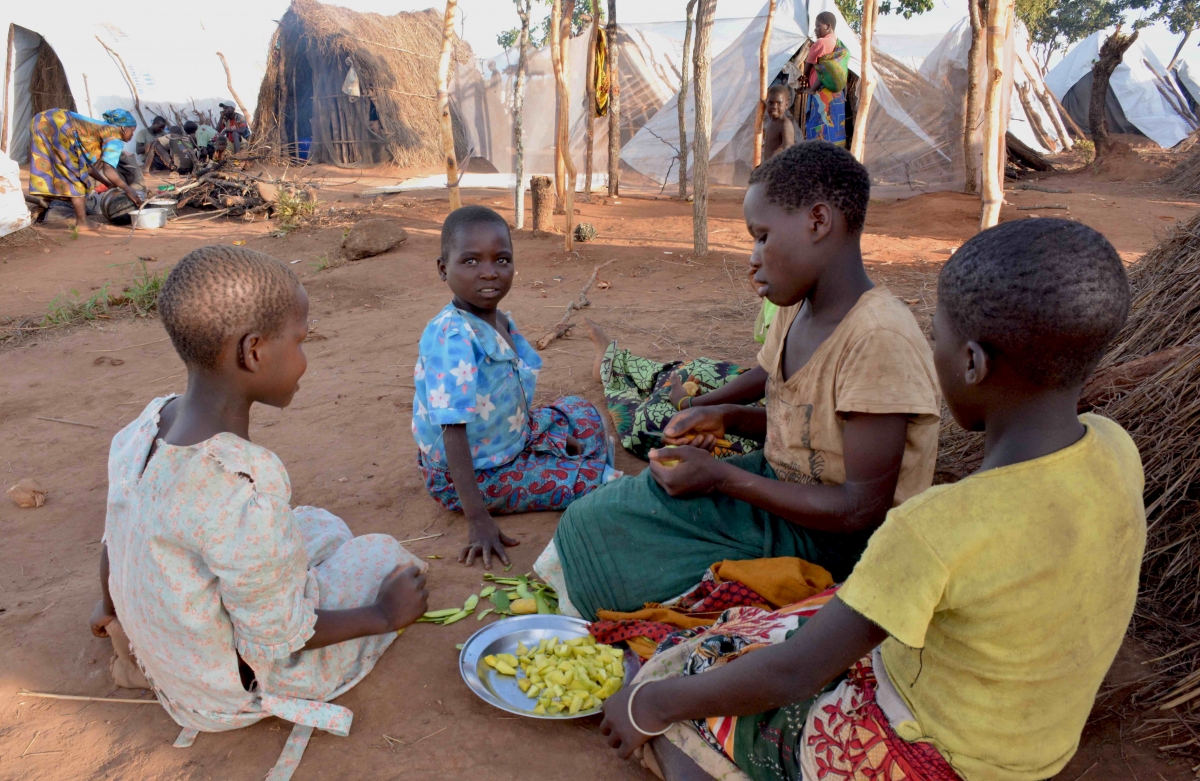Mozambique: 6,000 flee to Malawi in fear of executions and sexual abuse from government forces

More than 6,000 civilians in Mozambique have fled alleged summary executions, sexual abuse, and ill-treatment committed by its armed forces in the coal-rich Tete province, human rights groups have claimed.
Tensions have been running high between the ruling party, the Mozambique Liberation Front (Frelimo), and the opposition Mozambique National Resistance (Renamo) guerillas, since Frelimo won elections in October 2014, two decades after the country's bloody civil war.
In an escalation of a simmering conflict between old civil war foes, army operations began in Tete Province in October 2015, and thousands have fled to bordering Malawi fearing violence and harassment from government soldiers. 6,000 asylum seekers, mostly women and children, have been registered in Malawi since mid-December, according to the United Nations High Commissioner for Refugees, UNHCR.
"The Mozambique army cannot use the excuse of disarming Renamo militias to commit abuses against them or local residents," said Zenaida Machado, Mozambique researcher at HRW. "The government should urgently launch an investigation into reports of abuses and ensure any disarmament operation is carried out lawfully."
Frelimo's 'summary executions', 'sexual abuse'
Of these asylum seekers at the makeshift Kapise camp in Malawi – 300 meters from the border with Mozambique – dozens told Human Rights Watch (HRW) in February that they fled army abuses including summary execution of husbands and other villagers, and fear returning home.
In the village of Madzibawe, in December 2015, soldiers arrested a man they accused of being a Renamo militia member, put a rope around his neck and cut his head with a large knife, seriously injuring him, a witness said. A 22-year-old woman from Ndande said she saw soldiers detain her husband. When she later found his clothes near where he was captured, she believed he had been killed. "My relatives told me to keep his clothes with me because he might be still around," she said. "But when I call his phone, it goes unanswered." She fled to Malawi with her children.

There have been credible reports of sexual violence and abuse, although women and girls are often reluctant to talk about their ordeal, out of fear of stigma. A 19-year-old pregnant woman from the village of Madzibawe said that she had encountered two soldiers on her way to market in October. The soldiers ordered her to lie down, lift up her skirt, and spread her legs apart. One soldier used a stick to touch her genitalia and breasts, ordering her to tell him the name of each part. The soldiers then let her get up, kicked her on the back, and told her to go. She later fled to Malawi, spending more than a month in the bush to reach safety.
Frelimo army 'burns down homes'
The refugees also described how soldiers in uniform would tie villagers up and take them away to undisclosed locations, torched homes, granaries, and cornfields, accusing local residents of feeding and supporting the militias.
A 74-year-old man from Ndande who had been a refugee in Malawi during Mozambique's civil war, which ended in 1992, said he had to flee to Malawi again last month with just the clothes he is wearing. "The government soldiers burned down my house and all my property. The soldiers also burned down several other houses and cornfields in my village," he said.
While Mozambique government delegations have said that it is safe for refugees to return, these claims wete dismissed by the spokesman for the Mozambican Ministry of Foreign Affairs, Ambassador Antonio Matonse, who, following a government visit to Tete province and the Kapise camp, said that "military tension, sporadic clashes and severe drought" may have caused people to flee.
Malawi: no intention to improve refugees' conditions
There are only two borehole wells and four pit latrines to serve the growing numbers of residents in the crowded makeshift camp in Kapise, Mwanza district, where there are no school facilities, HRW reported. The Malawian government has not registered the new arrivals as asylum seekers and officials have insisted they want the camp residents to return home, and that they have no intentions to improve conditions in the camp.
"We have verified that the refugees are coming from Mozambique's Moatize district in Tete province. We have no intention to open a camp for them. Instead, our focus is on their repatriation," Beston Chisamire, a senior official in the Ministry of Home Affairs and Internal Security said.


No comments:
Post a Comment